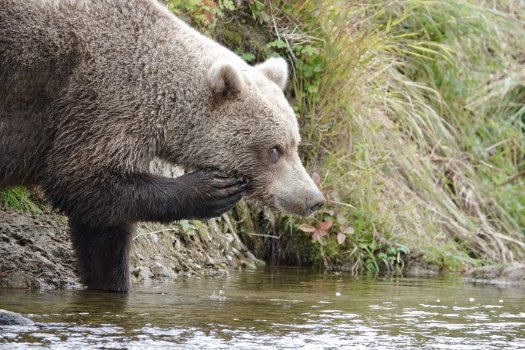I agree that the technical stuff, the various techniques can be learned; I don't believe creativity can be. As someone mentioned above, there is a certain amount of curiosity, experimentation and, as I commented in one of my posts, the saying goes, "thinking outside the box" and this is innate, it is not learned. Actually, at time it can be hidden, though, for years, even to the person who has it, and sometimes it is only when trying something like photography that an individual discovers something -- a gift, a talent -- he or she didn't realize they have.I agree that some people have natural talent or an eye for a good photo from the first time they pick up a camera. Others (me included!) don’t.
However I think by reading about composition etc you can learn to become a better photographer and to see the image a lot easier than you can learn the other examples you mention. I’ve watched F1 all my life. I know where the apex is. But hitting it in a car at 120 mph is another thing. I will never have the hand and eye coordination and bottle to do that.
Some people produce images which are reasonably pleasing to the eye and technically perfect, following all the "rules" of composition (rule-of-thirds and so on), while others produce images which at first glance make the viewer wonder what the heck THAT is supposed to be, or images which while interesting, are not "correctly" composed or are underexposed or overexposed or have too much noise or some other flaw. Some fortunate individuals are blessed with both creativity and the ability to do everything with technical perfection.
And, yes, in today's world of photography it has become necessary for the individual interested in shooting pictures to not only master (or at least get a reasonable understanding of) the technical aspects of the camera/computer one is holding in his/her hands in order to get it set up so that the desired kinds of images come out of it, but also needs a good "eye," a sense of good composition and what makes an interesting subject or intriguing and unique approach to that subject, AND on top of all that, also must be able to deal with culling, reviewing and editing the images in the computer afterward. Some people prefer the shooting phase, while for others it is the editing process they enjoy the most.
The days are long gone when a professional or serious amateur photographer would spend time in a shooting session and then on the way home stop in at the lab and drop off their rolls of film. Then the next day or so they'd return to the lab, review the printed-out contact sheets, make some selections and mark up where they wanted those images cropped or otherwise adjusted and the lab would then print the chosen images. (Note that I'm not talking about Joe Blow dropping off his one or two rolls of film at the drugstore and picking up his 3x5 or 4x6 prints later, that is a different scenario.).
Most of us now do it all, and some photographers even do their own printing or arrange with a pro lab to print some of their images for gallery display or hanging on the walls at home or in the office. When you think about it, that's a lot of different skill sets!


